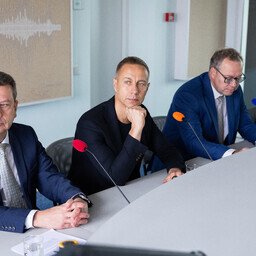The four candidates for President of the Bank of Estonia, Andrus Alber, Ülo Kaasik, Kilvar Kessler, and Margus Rink, participated in the debate. They discussed whether the Bank of Estonia and the Financial Supervision Authority (FI) should merge.
Kilvar Kessler, who currently heads the Financial Supervision Authority, said that merging would be a good idea. He believes that a unified institution could better fulfill its tasks. It would also give Estonia a stronger voice in the European Union. Additionally, it would simplify crisis resolution.
Margus Rink was against the merger. He said that large organizations do not always work well. In his opinion, the merger would not bring savings. Instead, it would create a large and complex organization.
Andrus Alber noted that many mergers around the world fail. He said that a thorough analysis should be done before making a decision. The current analysis is incomplete.
Ülo Kaasik said that merging has both pros and cons. The pros are better cooperation and information exchange. The con is that some FI tasks cannot be transferred to the Bank of Estonia. He added that merging is a political decision, not a decision for the Bank of Estonia.
All candidates agreed that the Bank of Estonia should better explain its role to society. Margus Rink said that people do not always know what the central bank does. Andrus Alber suggested initiating economic debates. Kilvar Kessler said that the central bank should explain complex matters simply. Ülo Kaasik added that communication with society can be improved.
Regarding inflation, the candidates said that the Bank of Estonia is an advisor. Monetary policy in the European Union is made jointly. Kessler said that different economies can be balanced with funds. Rink added that Estonian society should understand that differences are hard to make. Alber said that tax policy affects inflation. Kaasik believed that national policy can influence inflation.
Regarding economic forecasts, Kaasik said that short-term forecasts are easier to make. Long-term forecasts are more difficult. Alber said that the Estonian economy is hard to predict. Rink added that the central bank's word is important. Kessler said that forecasts are only estimates.
Regarding budgetary policy, Rink said that the Bank of Estonia has already warned. Alber said that the government makes popular decisions. Kaasik believed that the central bank should explain but not act forcefully. Kessler said that the central bank shows risks but cannot make decisions.

